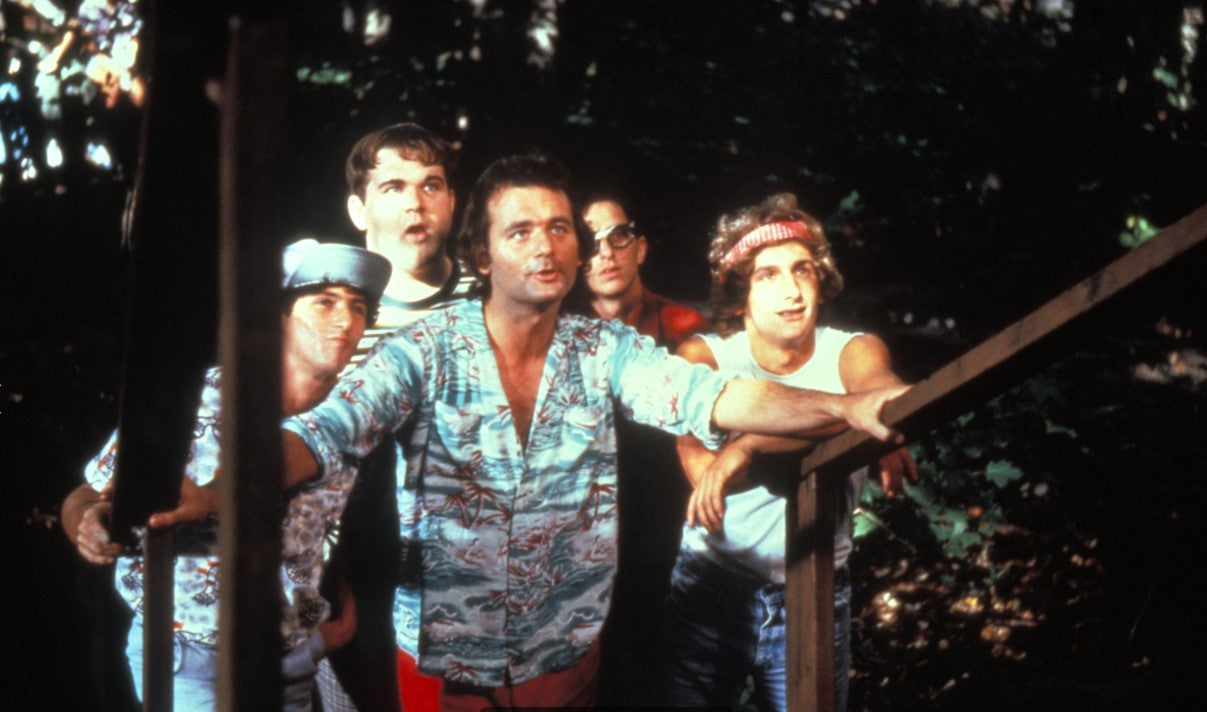
The Summer Camp Comedy That Started It All By Jeff Rauseo
Summer camp movies have become a staple of American cinema, serving as one of the most popular niche locations for stories ranging a wide gamut of genres. From classic comedies like Wet Hot American Summer, Camp Nowhere, and Heavyweights to famous slashers like Friday the 13th, Sleepaway Camp, and The Burning ― as well as heartfelt dramas like Moonrise Kingdom ― the summer camp has become synonymous with film.
And where did it all begin? Well, even though it wasn’t the first summer camp movie, the trend really gained traction after 1979’s Meatballs became an indie smash hit.
While there were other instances of summer camps used in films ― like the original The Parent Trap from 1961 ― Meatballs created the subgenre, resulting in dozens of imitators over the 40+ years since its release. Meatballs was unique in the way that it focused on the summer camp specifically, essentially spending the entire runtime exploring the timeline of a summer through the lens of campers and counselors, all on location at the camp. The lake, the pine trees, the canoes, the short shorts, the cabins ― it all seems so familiar today, but in 1979, this was a surprisingly unique take on the summer comedy. It took inspiration from films like American Graffiti and Animal House (cowritten by Harold Ramis, who also cowrote Meatballs) but worked as a nostalgia piece for Ramis, director Ivan Reitman, and cowriter Douglas Kenney, who fondly remembered their summers as campers and counselors in their youth.
Meatballs is also famous for being Bill Murray’s first starring role, which catapulted him from a funny man on “SNL” to full-on A-list celebrity. Within just the decade after Meatballs, Murray would go on to star in notable films like Caddyshack, Stripes, Groundhog Day, Scrooged, Where the Buffalo Roam, Ghostbusters, Ghostbusters II, and even had smaller roles in Little Shop of Horrors and Tootsie. His filmography in the 1980s alone is more impressive than most comics ever reach. He was truly everywhere! His improv skills and comedic timing were on full display in his performance as Tripper in Meatballs, and firmly established him as a comedy legend.
On a personal note, this movie really connected with me as a former camp counselor myself. Although I never worked an overnight camp (this movie made me wish I had!), I spent every summer during my college years working with kids ages 8–14 and managing a new group of CITs each year. Even when I was working at summer camps from 2011–2015, the camp experience was starting to slowly slip away as phones and technology took over what used to be a more communal experience.
It is something that made me feel so nostalgic when watching this film. There were no phones, no technology, just kids and counselors out having fun and living. Those summers are so short, and such a small part of life. Summer is just 10 weeks a year, until you grow up and get a job. And then it is all gone. I believe it is the reason that films like Meatballs, The Sandlot, and Dazed and Confused remain fan favorites decades after their release. We all want to be back in that time of life ― young, free, and spending our days outside playing games, riding bikes, and not worrying about anything but what the next activity might be.
Meatballs is a movie from a different time, and yet it is timeless all the same. We all know a Tripper, and we’ve all felt like Rudy (the shy camper) at some point in our lives. The beautiful mentorship between Rudy and Tripper is such an important part of growing up ― getting advice and learning from someone who isn’t our parent. It could be an older sibling, a counselor, a teammate, or a work colleague. But that core relationship and connection outside of family is an integral part of figuring out who you are as a kid.
As funny as the movie is, it is full of heart and community and camaraderie, so much of what is missing in our world today. The story holds up, the humor holds up because of Bill Murray’s genius, and the iconic scenery and music make Meatballs one of the most influential comedies ― or movies ― ever made. I do believe that we don’t get summer camp slashers without Meatballs. We don’t get Heavyweights and Wet Hot American Summer and more recent cult classics like Theater Camp. It set the standard for what a summer camp movie should be, and created its own niche subgenre. Not many films can say that, but Meatballs can.
Camp North Star forever!